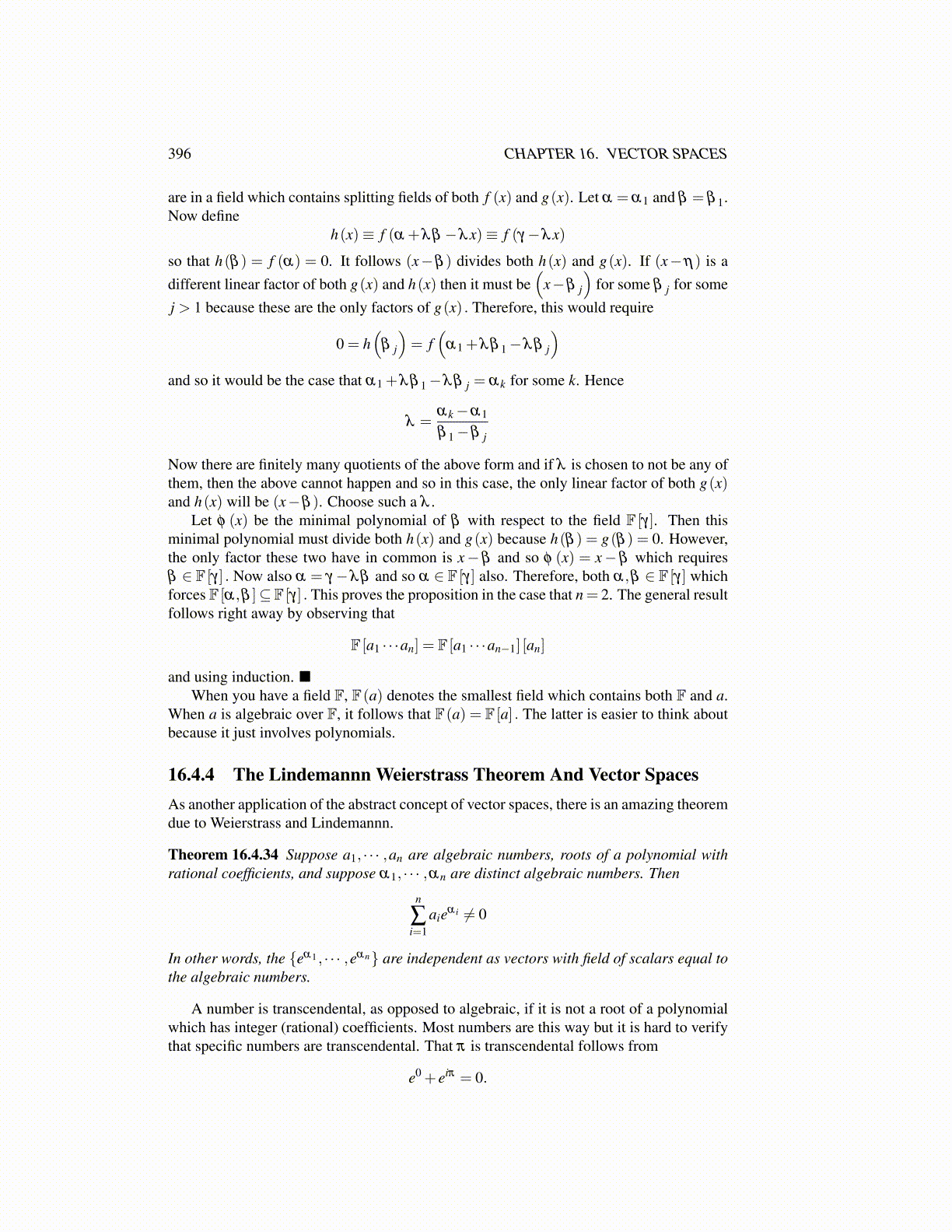
396 CHAPTER 16. VECTOR SPACES
are in a field which contains splitting fields of both f (x) and g(x). Let α = α1 and β = β 1.Now define
h(x)≡ f (α +λβ −λx)≡ f (γ−λx)
so that h(β ) = f (α) = 0. It follows (x−β ) divides both h(x) and g(x). If (x−η) is adifferent linear factor of both g(x) and h(x) then it must be
(x−β j
)for some β j for some
j > 1 because these are the only factors of g(x) . Therefore, this would require
0 = h(
β j
)= f
(α1 +λβ 1−λβ j
)and so it would be the case that α1 +λβ 1−λβ j = αk for some k. Hence
λ =αk−α1
β 1−β j
Now there are finitely many quotients of the above form and if λ is chosen to not be any ofthem, then the above cannot happen and so in this case, the only linear factor of both g(x)and h(x) will be (x−β ). Choose such a λ .
Let φ (x) be the minimal polynomial of β with respect to the field F [γ]. Then thisminimal polynomial must divide both h(x) and g(x) because h(β ) = g(β ) = 0. However,the only factor these two have in common is x− β and so φ (x) = x− β which requiresβ ∈ F [γ] . Now also α = γ−λβ and so α ∈ F [γ] also. Therefore, both α,β ∈ F [γ] whichforces F [α,β ]⊆ F [γ] . This proves the proposition in the case that n= 2. The general resultfollows right away by observing that
F [a1 · · ·an] = F [a1 · · ·an−1] [an]
and using induction. ■When you have a field F, F(a) denotes the smallest field which contains both F and a.
When a is algebraic over F, it follows that F(a) = F [a] . The latter is easier to think aboutbecause it just involves polynomials.
16.4.4 The Lindemannn Weierstrass Theorem And Vector SpacesAs another application of the abstract concept of vector spaces, there is an amazing theoremdue to Weierstrass and Lindemannn.
Theorem 16.4.34 Suppose a1, · · · ,an are algebraic numbers, roots of a polynomial withrational coefficients, and suppose α1, · · · ,αn are distinct algebraic numbers. Then
n
∑i=1
aieα i ̸= 0
In other words, the {eα1 , · · · ,eαn} are independent as vectors with field of scalars equal tothe algebraic numbers.
A number is transcendental, as opposed to algebraic, if it is not a root of a polynomialwhich has integer (rational) coefficients. Most numbers are this way but it is hard to verifythat specific numbers are transcendental. That π is transcendental follows from
e0 + eiπ = 0.